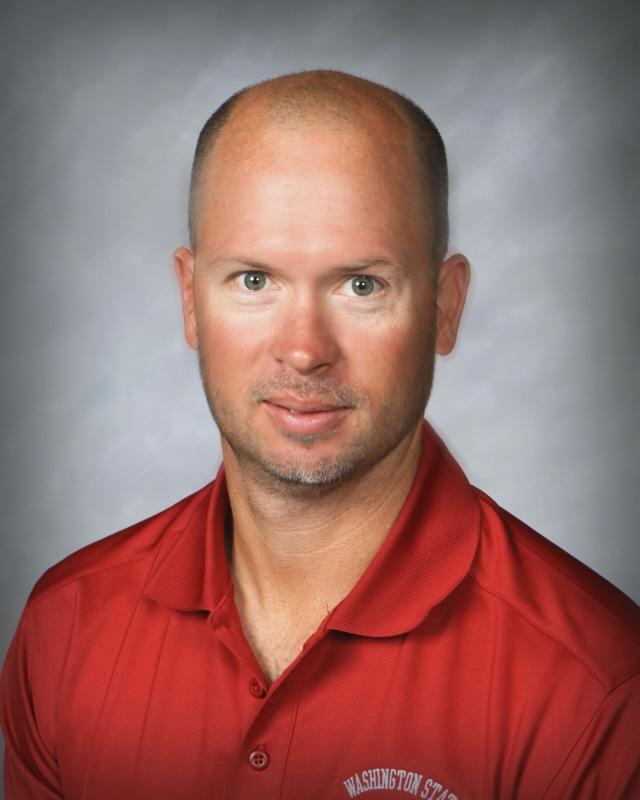Report: Sellers’ supervision lax, unaware of policies
Suspect may have inappropriately touched up to 15
February 6, 2015
The report from Wenatchee School District’s investigator said the freshman football coach in charge of supervision during the alleged rapes on a return trip from a game in Spokane Sept. 6 was not familiar with school policies and that there was lax and ineffective supervision on the bus.
The investigator also concluded there was a high level of misunderstanding and miscommunication among coaches and administration in the high school athletic program about rules and standard safety procedures.

Despite these findings, the freshman coach, Kevin Sellers, remains on paid administrative leave. Sellers has been on leave since Sept. 11, after a freshman player was expelled from school and booked into juvenile detention for allegedly raping three other players during a Sept. 6 return trip to Wenatchee High School.
And at this time, there’s still no estimate as to when Sellers’ leave will end, Sellers’ attorney John Brangwin said this afternoon. Those details are still being worked out, he said.
Superintendent Brian Flones was out of town today and couldn’t be reached for comment.
According to the report released today by the Wenatchee School District, Sellers “was generally unfamiliar with many of the District’s policies and procedures.” This report came from the district’s hired investigator, Kris Cappel.
But Brangwin calls this case a management failure. “[Wenatchee School District and WHS] just have a management mess… Sellers is the lowest guy. … He shouldn’t be the scapegoat for this thing,” he said.

Wenatchee Education Association President Kris Cameron said this afternoon that she believes “that the members I represent have been treated fairly and appropriately during the investigation as well as the outcome. The union won’t be taking any further action on behalf of our members at this time.”
The district’s investigator interviewed 33 witnesses and reviewed “hundreds of pages of documents.” That included the suspect’s student file with the district, Wenatchee Police Department reports, and communications between several district officials, staff, and stakeholders, among others, the report said.
According to Brangwin, the district’s investigator based her investigation primarily on interviews done by the police department. But, the police department interviews, he said, are “very flawed” because they didn’t follow “standard child interview techniques.” The questions were too leading and failed to report appropriate details, he said.
“Theres a lot to this case that has really been blown out of proportion, and that starts with poor child interview techniques,” Brangwin said.
The district issued a press release this afternoon, stating that actions are being taken to update policies and procedures, provide instruction to personnel, and requiring personnel to engage in student supervision and safety training.
CONFUSION REIGNS IN ATHLETICS
For the Sept. 6 trip, the normal 55-seat charter bus was unavailable, so Sellers requested a Suburban, which was approved by head football coach Scott Devereaux, according to the report. Sellers directed three of his assistant coaches to ride in the Suburban, which the investigative report says he “modeled his decision on what had been the longstanding practices of Coach Devereaux.”
“Two of the freshman assistant coaches told Coach Sellers that they didn’t think it was a good idea to take the Suburban,” the report said. “[Sellers] had no reservations whatsoever about being the only adult on the bus with supervisory responsibilities.”
Before each sports season, coaches met with the athletic director for what’s called a pre-season meeting. BJ Kuntz was athletic director up until this year, when Jim Beeson took over. But interviews with coaches indicate not everyone was aware of the same policies, according to the investigative report.

“Coach Sellers and Coach Devereaux all reported that they were not aware of any policies or procedures, or verbal guidelines dictating 1) the number of coaches who must ride a charter bus; 2) where coaches must sit on the bus; 3) coach to athlete ratios; 4) whether coaches should roam throughout the bus during road trips. AD Kuntz agreed that those kinds of details were not a focus of her pre-season meetings, and stated that there had never been any issues or problems associated with supervision of bus transportation.”
The report goes on to say that Beeson’s first meeting with coaches this school year “reminded coaches to diligently supervise their athletes to assure their safety” and that “it has been practice of the WHS athletic department to leave it to the discretion of each head coach to determine how many coaches ride the bus and where they sit.”
Supervision was a problem in previous years, according to an email from Kuntz, sent to former freshman football coach Mike Dacey and Devereaux on June 7, 2012. “I just came to school for a meeting and there are about 20 or so freshman boys outside the athletic office waiting to get picked up by their parents. [They] are climbing on the roof, playing chase, and not being supervised,” it said. This email was obtained through a public disclosure request by The Apple Leaf.
It was also a policy of the athletic department for academically ineligible athletes to avoid traveling with the team. But Sellers said he was not aware of any policy or rule that prohibited the suspect from traveling with the team in street clothes. His decision to allow the suspect to travel “did not violate District, WHS, or WIAA (Washington Interscholastic Activities Association) eligibility policies.”

His decision, though, was “contrary to the plain meaning of the WHS football handbook, but Coach Devereaux stated that the handbook was not intended to supersede or change the policy that allowed [redacted] players to travel as long as they didn’t miss school or dress down.”
According to the report, Devereaux crafted the handbook, but “didn’t review or rely on District, WIAA, or other policies or regulations in drafting the sections that were added to the handbook,” which was revised two or three years ago, at the request of Kuntz. It was originally created by Devereaux more than five years ago.
The report states that during Kuntz’s time as athletic director, she “largely left it to the discretion of the coach to decide whether to take ineligible players on away games.”
The two athletic directors promoted different guidelines and policies, which contributed to the confusion among coaches.
The rape suspect had a history of violent encounters in the Wenatchee School District, and according to Cappel’s report, “There is no formal policy or practice of sharing information between middle school and high school coaches about incoming freshman student-athletes.”
Coaches, however, have disciplinary records available to them on the school’s student information system, Skyward. Cappel’s report indicates that coaches do not regularly review that information.
One of the freshman coaches said that he was familiar with the suspect’s Pioneer Middle School assault charges, “but that he was pleasantly surprised by [suspect’s] behavior once he joined the freshman team. He saw no indication that [suspect] posed a risk to his teammates. The other coaches did not recall being told that [suspect] should be closely supervised.”
BRANGWIN: COACH’S ACTIONS NOT “LAX”
The report says that Sellers walked the aisle of the bus between two and 10 times during the bus ride, and each time, the rowdiness settled.
“This was a bus full of teammates — it wasn’t a prison bus heading to Walla Walla — and Mr. Sellers wasn’t a prison guard on a prison bus,” Brangwin said.
In his first interview with Cappel, Sellers stated “that the noise level was not excessive and was no different than any other bus trip he had ever taken in the past.” Sellers changed his statement in the second interview with Cappel, and “conceded that it might have been a little loud, but as far as he could tell all of the kids were having a good time, and he didn’t want to spoil their fun,” the report said.
Cappel concluded in her report that there was lax and ineffective supervision on the bus. But Brangwin disagrees with that statement, because his client was contacted by a concerned parent after the alleged incident occurred. He responded to that email on Sunday, Sept. 7, which Brangwin says indicated the coach wasn’t “lax” at all.
“He’s an intense, dedicated football coach who’s really big into football,” Brangwin said, adding that most parents and athletes respect Sellers’ coaching.
According to documents obtained by The Apple Leaf today, Sellers completed approximately 45 minutes less of sexual harassment policy and prevention training this year, compared to two hours of training in this area for many previous years.
The freshman suspect appeared in court Jan. 29, but his trial was again pushed back to March 13. He was bailed out Oct. 1 and plead not guilty on Sept. 25.
Adrian Robinson contributed to this story.

Cordell Schroeder • Feb 8, 2015 at 11:22 am
The previous AD should be held largely responsible for this mess. In my opinion her leadership style contributed to a culture of confusion and mediocrity in the Athletic Department. A situation like this was inevitable, she was fortunate to have been moved out of that position when she was. Hopefully the District will do the right thing and hold the entire chain of command responsible and not just hang the Coach. Issues like this are systemic and indicate a larger problem that needs to be addressed.